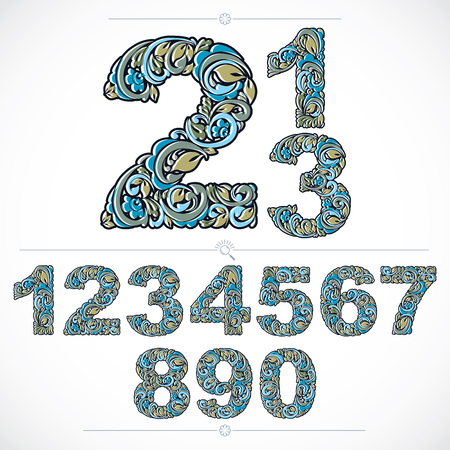Introduction to Tarot Reading in the UK
Tarot reading in the United Kingdom is a practice woven with rich threads of history, folklore, and modern sensibility. From the bustling markets of London to quaint village fairs in Cornwall, tarot has found its place as both a tool for self-reflection and a source of guidance for others. Unlike other parts of the world, British tarot practice is influenced by unique local traditions: think the lingering echoes of Arthurian legend, the mystical draw of Stonehenge, or the subtle interplay between pagan roots and contemporary spiritualism. As tarot’s popularity rises across generations—spurred on by social media communities and a growing curiosity for alternative wellness—so too does public scrutiny regarding ethical standards. The UK’s deeply embedded values around privacy, respect, and personal boundaries lend a distinct character to how tarot is approached here. Readers are increasingly called upon not just for insight, but for integrity—balancing the ancient allure of divination with a modern demand for responsibility and accountability. This evolving landscape invites practitioners to reflect on their roles within British society, questioning how to navigate dilemmas and uphold trust while honouring both tradition and client welfare.
Ethical Responsibilities of the Tarot Reader
Tarot reading within the UK context comes with a unique set of ethical responsibilities that extend far beyond simply interpreting cards. At the heart of this practice lies the reader’s duty of care, which encompasses a commitment to the wellbeing of clients, ensuring a supportive and respectful environment regardless of the nature of their queries. This professional obligation is particularly significant in the UK, where clients often approach tarot with deeply personal or sensitive matters, from relationship dilemmas to career crossroads. Navigating these conversations ethically requires a balanced approach between empathy and boundaries.
Duty of Care: More Than Just Card Reading
The concept of duty of care is paramount for UK tarot readers. It involves recognising when a client may require support beyond the scope of tarot—such as mental health services or legal advice—and signposting them accordingly. Readers must resist any urge to act as counsellors or medical professionals, respecting the limits of their role while still offering compassionate guidance. In many cases, especially given the diverse backgrounds and expectations among British clients, it’s about knowing when to listen actively and when to refer on.
Confidentiality: Trust at the Core
Confidentiality remains a cornerstone of ethical tarot practice in the UK. Clients need assurance that whatever they disclose during a session will remain strictly private. This builds trust—a vital ingredient in any successful reading. The table below outlines key aspects of confidentiality relevant to UK tarot practitioners:
| Aspect | Best Practice | UK-Specific Consideration |
|---|---|---|
| Client Identity | Never share names or details without explicit permission. | Particularly important in small communities where word travels fast. |
| Session Content | Keep all topics discussed within the session confidential. | Some subjects (e.g., family issues) may be culturally sensitive; treat with extra discretion. |
| Record Keeping | Store notes securely if you keep them; consider data protection laws. | Adhere to GDPR requirements for handling personal data. |
Professionalism: Meeting UK Client Expectations
Professionalism in tarot means maintaining clear boundaries, being punctual, communicating fees transparently, and refraining from making unrealistic promises. In Britain, where scepticism towards esoteric practices can be high, demonstrating professionalism is essential to earning respect and credibility. This includes using appropriate language—avoiding jargon unless explained—and being mindful not to impose personal beliefs onto clients. The cultural landscape in the UK also means respecting diversity in spiritual outlooks and being aware of class, regional, or religious sensitivities during readings.
Navigating Complex Expectations
British clients may arrive with varying degrees of expectation—from those seeking serious life guidance to others simply curious about tarot as entertainment. An ethical reader must skilfully navigate these differences by clarifying what a tarot reading can and cannot provide at the outset. Setting clear boundaries regarding predictions about health, financial investments, or legal matters helps prevent misunderstandings and maintains integrity within the practice.

3. Navigating Consent and Sensitive Subjects
Securing authentic consent is at the heart of ethical tarot reading, particularly within the UK where personal privacy and boundaries are highly valued. Before turning over a single card, it’s vital to ensure that your querent is fully aware of what a tarot reading entails, including its limitations and the possible emergence of challenging topics. A straightforward, British approach—such as asking, “Are you comfortable discussing this today?”—helps establish mutual understanding and trust. When sensitive or potentially distressing subjects arise, tread lightly. In British culture, there’s often a preference for understatement rather than direct confrontation; thus, framing questions gently and offering space for clients to decline to discuss certain matters is crucial. For instance, instead of probing directly into family issues or grief, you might say, “Would you like to explore this further or focus on another area?” This not only respects their emotional landscape but upholds the quintessentially British value of personal autonomy. Always be clear about confidentiality: reassure your client that what is shared in the reading stays between you two. By prioritising informed consent and handling delicate topics with empathy and tact, you create a safe environment where clients feel respected and empowered—hallmarks of responsible tarot practice across the UK.
4. Maintaining Integrity: Avoiding Exploitation and Scaremongering
In the context of UK tarot practice, maintaining integrity is fundamental, especially when reading for others. British culture places a strong emphasis on fairness, honesty, and sensitivity, particularly regarding money and personal wellbeing. Tarot practitioners must be vigilant to avoid even the appearance of exploitation or scaremongering—a concern heightened by the UKs long history of skepticism towards fortune-telling and spiritual services.
Understanding British Sensitivities
British clients often approach tarot with a blend of curiosity and caution. They expect transparency about fees and clear boundaries between guidance and guaranteed outcomes. In a nation known for its understated approach to spirituality, any hint of manipulation—especially for financial gain—can quickly erode trust. It’s crucial to communicate openly about what tarot can and cannot offer, setting realistic expectations from the outset.
Approaching Difficult News with Tact
The British value understatement and discretion, especially in sensitive matters. When readings involve challenging topics—such as health concerns, relationship breakdowns, or financial difficulties—delivering messages with empathy is vital. Instead of blunt predictions, practitioners should frame insights as possibilities rather than certainties, encouraging clients to view readings as opportunities for reflection rather than definitive forecasts.
Ethical Considerations: A Practical Guide
| Issue | UK Client Sensitivity | Recommended Approach |
|---|---|---|
| Financial Fairness | Skepticism about hidden costs or upselling | Be transparent about pricing; avoid suggesting extra paid services during vulnerable moments |
| Difficult Predictions | Discomfort with fatalistic language or fear-based messaging | Use cautious language; focus on empowerment rather than doom-laden outcomes |
| Personal Boundaries | Respect for privacy and autonomy is paramount | Avoid probing into areas the client hasnt volunteered; always seek consent before exploring sensitive topics |
The Responsibility of the Tarot Practitioner
The ethical tarot reader in Britain acts as a facilitator—not a fortune-teller or a source of anxiety. Practitioners are encouraged to provide guidance that upholds the clients autonomy while avoiding any statements that could be perceived as manipulative or alarmist. By consistently prioritising integrity, practitioners not only honour their craft but also foster lasting trust within their community.
5. Respecting Diversity and Inclusion in the UK
Tarot reading within the UK context is beautifully interwoven with the country’s rich multicultural tapestry. As practitioners, we are called to honour this diversity by approaching every client interaction with openness and respect. The UK is not a monoculture; clients may come from myriad backgrounds—religious, ethnic, gendered, or otherwise—and each brings their own set of beliefs, expectations, and sensitivities to a tarot session.
Understanding Cultural Nuances
Navigating these differences requires more than just surface-level awareness. It’s essential to be genuinely curious and informed about cultural norms that might affect how clients perceive spiritual practices like tarot. For instance, while some may view tarot as a source of empowerment, others might have reservations rooted in their religious upbringing. Practitioners should be prepared to adapt their language and approach accordingly, ensuring that sessions remain inclusive rather than alienating.
Creating a Safe Space for All
A key ethical consideration is the creation of a non-judgemental environment where all clients feel valued. This means being mindful of pronoun use, avoiding assumptions about relationship structures or life experiences, and being sensitive to topics that may be taboo or triggering within certain communities. In practice, it’s wise to ask open-ended questions and let clients guide discussions about what they’re comfortable sharing or exploring through tarot.
Continuous Learning and Self-Reflection
Diversity and inclusion aren’t static goals but ongoing commitments. Regularly reflecting on one’s own biases and seeking out cultural competency training can be invaluable. Engaging with the broader UK tarot community and listening to voices from underrepresented groups helps ensure that our practices evolve alongside the society we serve. Ultimately, upholding cultural sensitivity not only protects clients but enriches our work as readers—making tarot a truly inclusive experience for everyone who seeks its guidance.
6. Boundaries: When to Refer or Decline a Reading
As a tarot practitioner in the UK, understanding and honouring your boundaries is just as crucial as interpreting the cards themselves. Ethical practice demands self-awareness about your own personal and professional limitations, ensuring that you can provide meaningful guidance while safeguarding both your well-being and that of your clients. But when exactly should you draw the line, suggest alternative support, or even decline a reading altogether?
Recognising Your Own Limits
Every reader has areas where their knowledge or comfort may waver. Perhaps a client’s question delves into legal, medical, or financial matters—territories best left to licensed professionals. Alternatively, you might notice your own emotional state is not conducive to holding space for another person’s concerns. Recognising these moments is key to maintaining ethical standards and upholding the trust placed in you by those seeking guidance.
Offering Alternatives: A Compassionate Approach
If you feel a client’s needs extend beyond what tarot can responsibly address, it’s both respectful and responsible to suggest alternative sources of support. In the UK context, this might mean recommending helplines like Samaritans for emotional distress, encouraging professional counselling through NHS resources, or pointing toward citizen advice services for legal or financial queries. Such referrals are not a sign of inadequacy but rather an act of care, placing the client’s welfare above all else.
Polite Ways to Decline a Reading
There will be times when declining a reading is the only appropriate course of action—perhaps due to ethical concerns, personal discomfort with the query, or simply feeling unable to offer impartial insight. In these instances, clarity and politeness go hand-in-hand. You might say: “I’m sorry, but I don’t feel equipped to offer guidance on this matter. It may be helpful to speak with someone who specialises in this area.” This approach maintains professionalism while reinforcing your commitment to ethical practice.
The Value of Boundaries in Building Trust
Ultimately, setting clear boundaries fosters mutual respect between reader and querent. It signals maturity within your practice and reassures clients that their wellbeing—and yours—are paramount. By knowing when to refer or refuse a reading, you contribute to an environment of integrity within the UK tarot community, supporting its reputation as a space for genuine exploration and responsible guidance.

